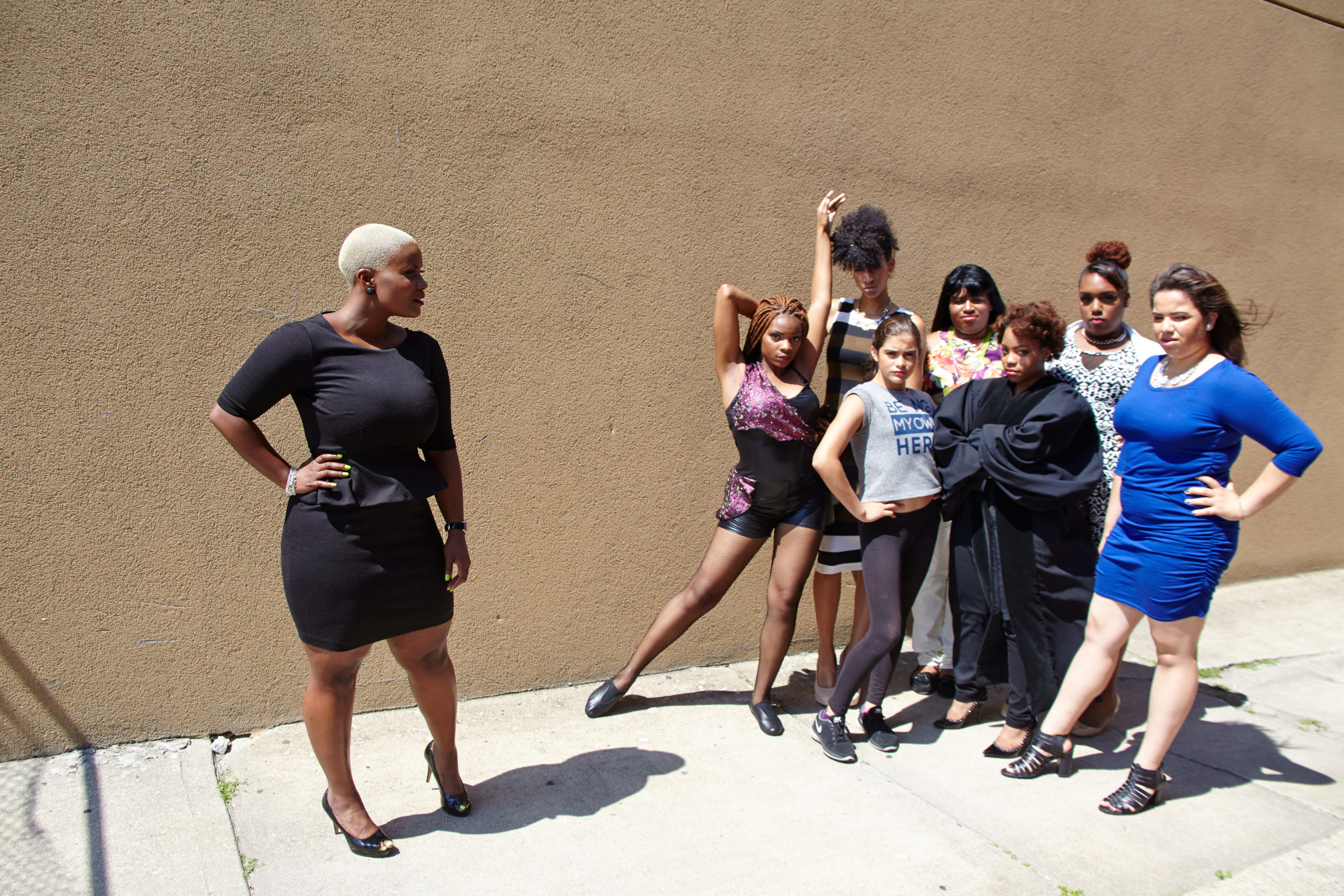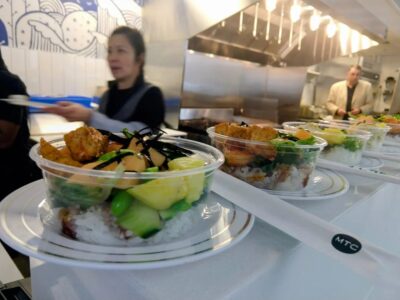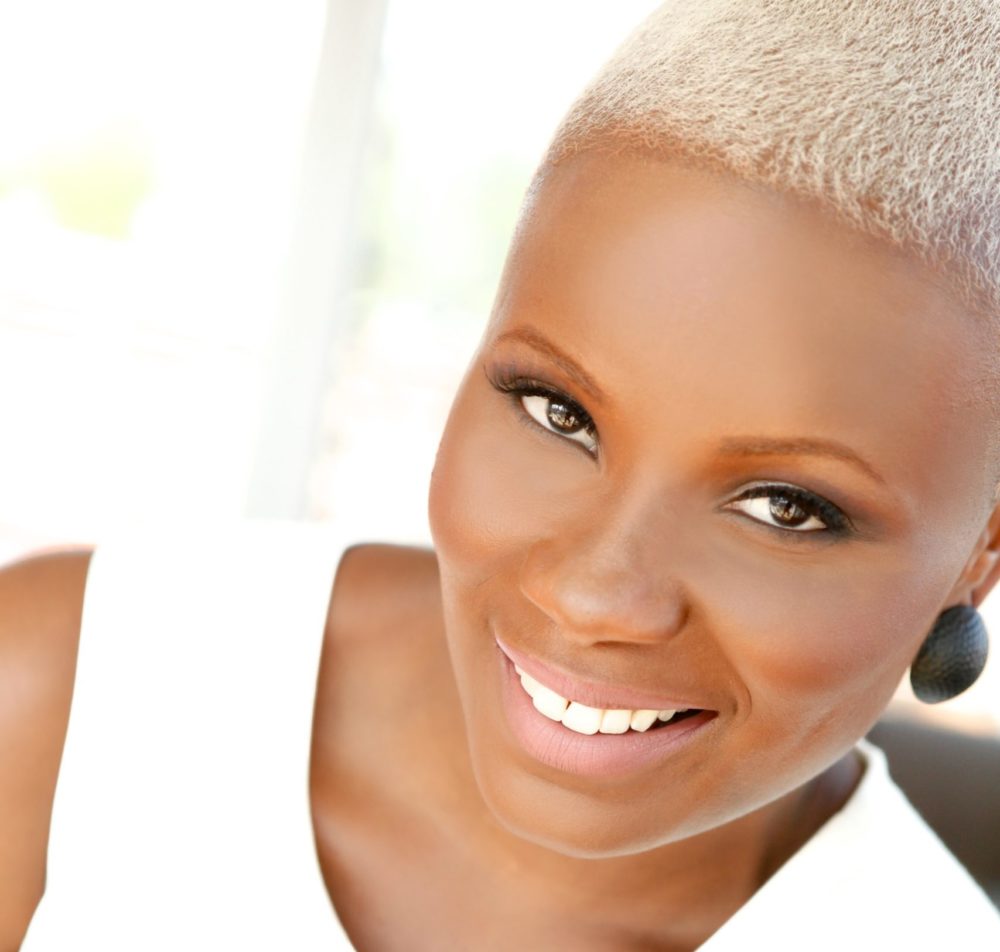
This article appears in a 12-part series on minority entrepreneurship and is underwritten by the Wilmington Alliance. It was independently reported and not reviewed by Wilmington Alliance before publication.
Akilah Bernard, founder of I Am B.E.A.U.T.Y, chose Delaware as a place to settle down, both for its location — she needed a place that was accessible for regular commutes to New York City — and because she saw it as an “opportunity zone,” in a good way.
Bernard grew up on Long Island. Her husband, a tech developer, is from Atlanta. Bernard’s father had retired to Delaware, where he bought several rental properties. The location was right, so the couple moved into one of her father’s properties with plans to stay for three months.
During that time they attended a Connect Delaware event.
“Gov. [John] Carney was there,” she said. “There was a plea for Black millennials to come here — ‘You’re needed.'”
It was the message Bernard needed to stay in Delaware to continue building her growing women’s coaching business.
I Am B.E.A.U.T.Y. came about in the early ’10s. Bernard, with her degree in accounting and economics from the historically Black North Carolina Agricultural and Technical State University, had gotten what some might consider a dream job in New York corporate America, where she was on a track to one day become a partner. During that time, she worked for huge corporations, including PwC and Deloitte.
“I realized one day after working my way up the ladder that I was very passionate about the empowerment of youth, specifically girls,” she said. “Being one of the few black people in a room, I was often called upon to go to colleges, to work with community partners, and to speak with youth of color.”
The biggest turning point was a six-week business trip to India, where she would lead workshops on communication.
“I kind of had this ‘aha’ moment that this is not what I’m supposed to be doing,” she said. “I did a workshop over there on communication, and the feedback was, ‘You are so inspiring. This is so inspirational.’ It wasn’t really meant to be inspirational, it was meant to teach you how to communicate with people in the U.S., but it was a sign that perhaps [I was] supposed to be doing something else.”
Shortly after returning to the states, Bernard left her corporate job, and spent more than a year discovering her talents: She started acting, modeling, teaching Zumba, all while renting out rooms in the house she’d purchased in 2008 to stay afloat.
“I started my own small practice, which is the ACT Advisors Group, under which I continued doing what I was doing in corporate America, but for myself, where I was doing tax compliance and bookkeeping for small businesses,” she said. “Out of that came my curriculum for I Am B.E.A.U.T.Y.”
At its heart, I Am B.E.A.U.T.Y. is about helping girls and women empower themselves, with Bernard drawing on her talent to inspire people, as well as her own experiences.
“Growing up, I experienced a lot of different things. I experienced molestation, being verbally abused, physically abused, and then getting to a space in high school where I was what you might call catfished, where someone much older than me faked their identity. It’s a long story, but it’s an experience that I would never want any other girl to experience,” she said. “Because I almost destroyed my life through that. I wanted to develop something that would allow someone that age to never have to go through that by benefiting from all of the lessons that I had learned by this point in my life.”
Her experiences in college and corporate America taught her lessons, too.
“I’ve been very fortunate, having gone through a historically Black university, pledged a sorority, going through the corporate hazing. I thought, ‘How can I package this in a way where a girl at 8 or 9 or 15 would somehow tap into some of her talents and confidence and just understand her self worth earlier than I did?'”

An I Am B.E.A.U.T.Y photoshoot. (Courtesy photo)
In the beginning, around 2013, I Am B.E.A.U.T.Y. was a nonprofit and a six-week summer program, the first of a variety of planned programs. That first year, she had hoped to get 50 girls ages 13 to 18, signed up. She wound up with 13 girls — which turned out to be better.
“I realized that had we had more girls we wouldn’t have been prepared,” she said. “We wouldn’t have been able to meet their needs. So much came out of that first group that I wasn’t prepared for, like girls exploring their sexuality and wanting to know how to be gender affirming and not so heteronormative. We also had girls that were struggling with mental health, cutting and so forth.”
After one session, a parent stopped her and disclosed that her daughter had a mental health issue and was seeing several therapy professionals: “She said, ‘I don’t know what you’re doing, but you need to continue doing it because she’s excited about coming, and I’m seeing shifts in her that I’ve never seen before.”
This parent told her what she was doing was group therapy — and she was undercharging for it. After the program ended, she thanked all of the parents and said that if they liked the program and wanted it to be able to continue, donations were welcome. Parents wrote checks, voluntarily, for as much as $500.
“That’s when I knew I had been under charging,” she said. “The greatest advice I’ve gotten, especially for black business owners, is that when you’re in ‘heart work’ where you give to people, a lot of times we want to give it away. You don’t realize you can get paid for it. We often want to be ‘missionaries before mercenaries.’ Because I started that way, I didn’t really have a business plan or strategy.”
Bernard got a master’s degree that aligns with her work and shifted to an incorporated business with the nonprofit continuing as a foundation, but it was the connections she’d made via parents early on in the program that grew the business. She did collaborations with the Teamsters conducting Mommy and Me events.
“It spiraled into doing international work,” Bernard said. “Now we do work now in Haiti, Jamaica and Kenya. Our virtual girls summit for Women’s History Month turned into an online seven-week program with girls in Kenya. It opened up something completely new for us.”

S.O.A.R. Girl Virtual Program with girls (10-12) residing in Kenya. (Courtesy screenshot)
Virtually all of her business has grown via word of mouth and social media.
“Sometimes people just Google it,” she said. “Some parents look at me, a dark-skinned woman with very short hair and no weave and they say they see that as a good role model for their daughters.”
While many of the girls — and now women, too, as the programming expands — are Black, Bernard stresses that I Am B.E.A.U.T.Y. is for girls and women of all different backgrounds and ethnicities.
“There is always this assumption,” she said. “I do work with girls of color, but why can’t [I Am B.E.A.U.T.Y] be a Girls Inc. or Boys and Girls Club?”
As the organization grew, Bernard received a new opportunity from a familiar place.
“In 2016, corporate America calls me again and asks me if I want to work as a contractor. As a contractor, you only work six months of the year, three months on, three months off. So for the last four years it’s allowed me to still bring in the income I was making before while I grow my business.”
Delaware, she says, is a good place to grow a business because of its sense of community — with the caveat that finding it, and breaking into the small community’s cliques, can be a challenge.
“We’re affiliated with HBCUs, I’m with [historically Black sorority] AKA, I came and I found the AKA chapter,” she said. “I can see how someone who does not have these affiliations might find it difficult. I think the info is scattered. There are resource centers, but it feels like there isn’t a central place where I should go as a new business owner in Delaware. It is very cliquey, people don’t really open up to outsiders.”
Even with her connections, Delaware hasn’t always been the most welcoming place. After buying a home in the suburbs, “I was welcomed by finding out that all of my new neighbors got Ring cameras because the former owner warned them that the house was sold to a Black couple,” she said. “It’s important to have those conversations, too.”
Join the conversation!
Find news, events, jobs and people who share your interests on Technical.ly's open community Slack

Delaware daily roundup: Over 4,000 Black-owned businesses uncovered; Dover makes rising cities list; a push for online sports betting

Delaware daily roundup: Ladybug Fest illuminates small biz; Hahnemann Hospital's biotech future; intl. politics and a Middletown project

Delaware daily roundup: DE in DC for 'Communities in Action'; diversifying the coffee supply chain; Invista's future


